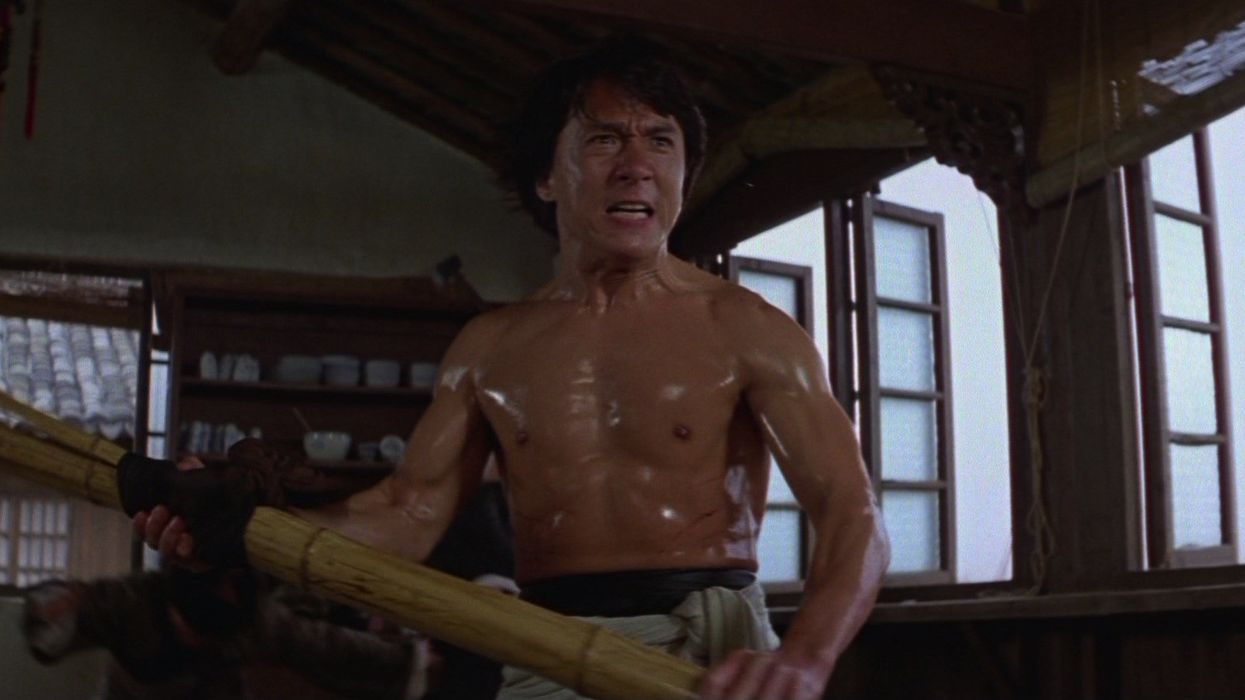Jackie Chan's 9 Principles of Action Comedy
Who doesn't love a good action comedy? Men in Black. Charlie's Angels. Bad Boys. Rush Hour. TMNT of 1990. Come on -- they're classics. They pair perfectly with pizza and a dragging Sunday afternoon.

However, there's a lot more to these high-octane chucklefests than explosions and perfectly timed one-liners. Beneath the thin layer of what seems like a whole lot of simplistic entertainment lies carefully crafted choreography, dynamic editing, and engrossing character development.
In fact, if you want a lesson on how to construct your own action comedy, who better to learn from than Jackie Chan, a master in the best action comedy subgenre -- martial arts. Tony Zhou of Every Frame a Painting breaks down several aspects of filmmaking that Chan has spoken about over the years, compiling them into a bit of a checklist for filmmakers to follow if they should ever get the urge to send 20 henchmen flying over an unfinished bridge in a van full of exploding illegal fireworks -- in a funny way.
Zhou broke down the principles thusly on Twitter:
- Start with a disadvantage
- Use the environment
- Be clear in your shots
- Action and Reaction in the same frame
- Do as many takes as necessary
- Let the audience feel the rhythm
- In editing, two good hits = one great hit
- Pain is humanizing
- Earn your finish
There's a lot of good advice in there -- stuff you can use in pretty much any film project you try to tackle regardless of genre (though a few are genre-specific). One point I couldn't agree more with is the idea of lingering on shots a little longer. I mean, I love the seizure-inducing editing of chaos cinema as much as the next adrenaline junkie, but there's something beautiful and nostalgic and honest and good about hitting the breaks a little bit, slowing things down, and letting action unfold rather than explode.
Seriously, are you less awestruck watching Bruce Lee spar with a gang of villains just because there's less editing -- and zero death metal track? No, dare I say you're more awestruck, because of his incredible physical prowess. Does your heart flutter every time Jackie Chan pulls off some incredibly intricate and creative stunt? Does it really matter that it happened in 20 edits instead of 7 trillion?
I think I've made my point -- don't do away with chaos editing, but make sure the choice to use it is intentional, so it's not getting in the way of your story.
Also, I do have to disagree with Tony Zhou (and probably a huge number of you) on one thing and say that this is the best death scene ever.
Source: Every Frame a Painting











